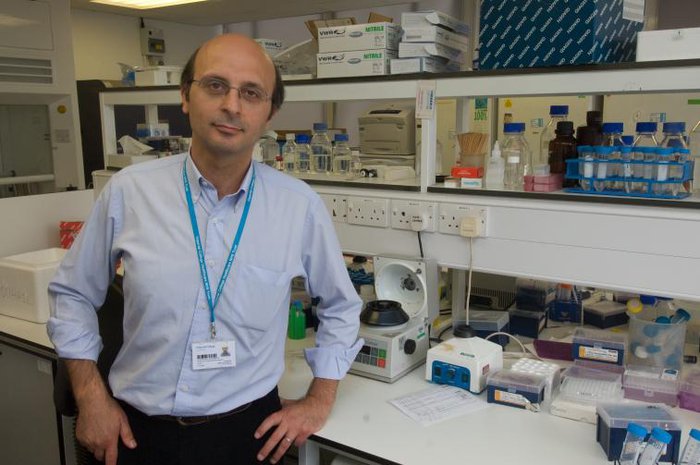Using immune cells to create a new CAR-T therapy for multiple myeloma
Multiple myeloma affects blood cells in the bone marrow called plasma cells, and although it can be treated, it currently has no cure. Professor Karadimitris and his team are researching a new treatment that uses special immune cells.

Professor Anastasios Karadimitris
The challenge
Multiple myeloma is a type of blood cancer that affects blood cells in the bone marrow called plasma cells. Although myeloma can be treated, it currently has no cure. CAR-T therapy is a type of cancer treatment that harnesses the power of our immune system to destroy cancer cells. This treatment involves taking T-cells (cells that help to protect you from infection and disease) out of the blood, modifying them in a lab and then giving them back to the patient to seek out and destroy the cancer. CAR-T cell therapy has been effective in treating myeloma, but it still can't completely cure the disease.
The project
In this project, Professor Karadimitris and his team are researching a new treatment for multiple myeloma. This treatment is called CAR-iNKT, and it uses special immune cells called iNKT cells which help fight infections in the body. Researchers will make changes to these iNKT cells in the lab, by adding ‘CAR’ and other immune molecules to make them better at targeting the cancer cells. By doing this they hope to create a treatment more effective than current options for treating multiple myeloma.
The future
If this research is successful, it could lead to a new treatment for multiple myeloma that is more effective than current treatments. This could mean people with myeloma could experience longer periods of remission, or in some instances, this approach might even offer a cure for the disease. Ultimately, this treatment aims to be more powerful and more accessible than existing treatment options.
